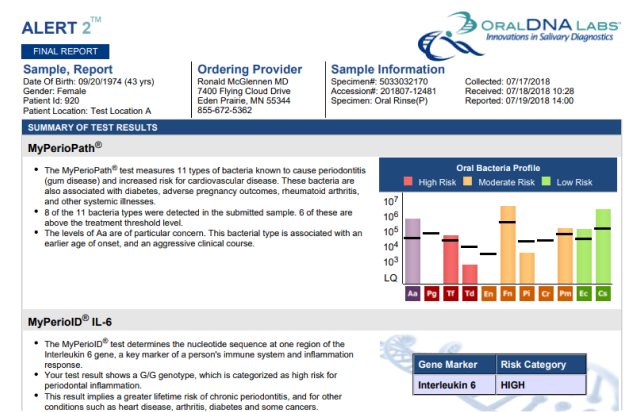
The oral microbiome plays an important role in the health and development of pre-term babies. Pre-term birth, which is defined as delivery before 37 weeks of gestation, can be associated with a range of health complications, including respiratory distress syndrome, jaundice, and feeding difficulties, developmental delays, and even death. Studies show that pregnancy gingivitis is associated with a six-fold increase in the risk of premature birth.

The primary bacteria that causes periodontal disease is known as Porphyromonas gingivalis. This bacteria is found in dental plaque, which is a sticky film of bacteria that forms on the teeth and gums. When left untreated, the bacteria in plaque can lead to inflammation of the gums, which can progress to periodontal disease and bone loss.
In pregnant women, the presence of Porphyromonas gingivalis in the oral cavity has been linked to an increased risk of pre-term birth and low birth weight babies. The bacteria can produce toxins that can enter the bloodstream and trigger an immune response, causing inflammation and damage to tissues throughout the body, including the uterus and placenta.
Porphyromonas gingivalis is a Gram-negative anaerobic bacterium that is commonly associated with periodontal disease, which is a severe form of gum disease, which is characterized by inflammation destruction of gum tissue, and eventual loss of teeth if left untreated.
P. gingivalis is a rod-shaped bacterium that forms biofilms, which are complex communities of bacteria that adhere to surfaces, including teeth and gum tissue. This bacterium has the ability to evade the immune system and can produce a variety of virulence factors that contribute to its pathogenicity. Some of the virulence factors produced by P. gingivalis include enzymes that degrade gum tissue, toxins that damage host cells, and molecules that modulate the host immune response.

Pregnant women with periodontal disease, which is often caused by P. gingivalis and other bacteria, have been shown to have an increased risk of pre-term birth, defined as giving birth before 37 weeks of gestation. P. gingivalis is thought to contribute to pre-term birth through several mechanisms.
One proposed mechanism is the spread of oral bacteria, including P. gingivalis from the oral cavity to the reproductive tract via the bloodstream or other routes, which can trigger an inflammatory response in the uterus and lead to pre-term labor. Inflammatory molecules produced in response to P. gingivalis infection may also reach the placenta and fetus, potentially affecting fetal development and increasing risk of pre-term birth.

Preventing the growth of Porphyromonas gingivalis and other harmful bacteria in the oral cavity can help reduce the risk of periodontal disease and its associated complications during pregnancy. Good oral hygiene practices, such as brushing and flossing regularly, and regular dental check-ups and cleanings, are essential in preventing the growth of harmful bacteria and promoting healthy gums.


At Dentulu, we offer a variety of services to help prevent and treat periodontal disease, including periodontal trays and remineralization trays. These at-home treatment options can help promote healthy gum tissue and prevent the progression of periodontal disease.
We also offer virtual consultations and teledentistry services, making it easy for pregnant women to receive high-quality dental care from the comfort of their own homes. By addressing the link between periodontal disease and pre-term, low birth-weight babies, Dentulu is committed to providing comprehensive and proactive dental care to our patients, especially pregnant women.
Generally, a salivary testing report will include the patient's identifying factors such as age, name, gender, and the date of the test. Next it will identify the testing results which could include inflammatory markers, oxidative stress markers, and genetic markers. Finally it will include a section on interpreting your results.
At Dentulu, we highly recommend each patient to schedule an appointment with their general dentist or primary care physician, or one of our highly trained Dentulu Teledentists who can discuss with you and assess your current dental and health conditions as well as prior health history to come up with the most appropriate care plan for your needs.
See Sample Report

It’s simple! Click the link below, choose the package you'd like, follow the prompts, and have the kit delivered right to your door!
Once your test results come in, you can interpret the results yourself, follow up with your regular dentist, or schedule a consultation with one of our Dentulu Teledentists from your computer or mobile device at any time that is convenient for you!
 Interpreting Your Test Results
Interpreting Your Test Results